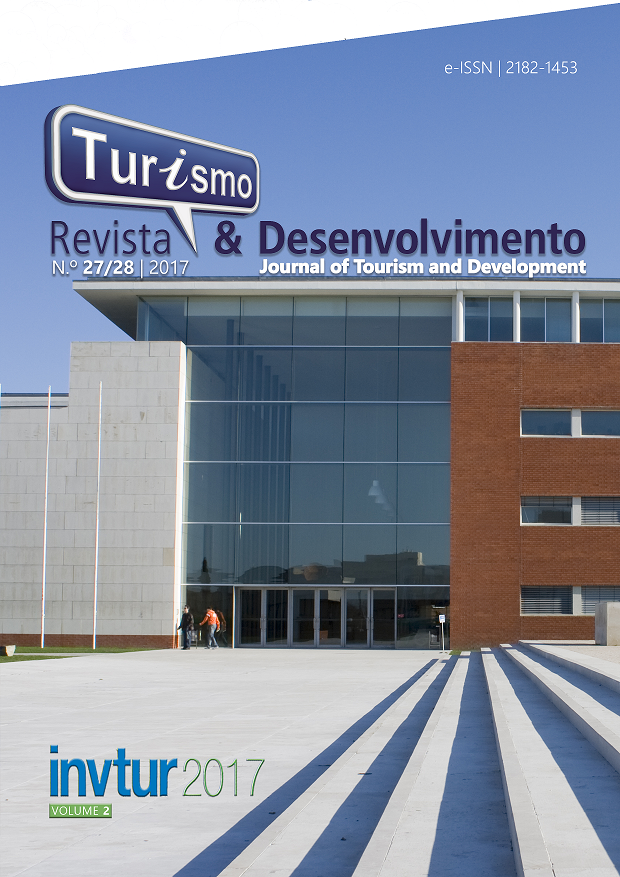Reflexões sobre cultura turística em tempos de revolução digital a partir de contextualizações sobre Salvador-BA
Resumo
O artigo considera a turistificação como processo de (re)configuração de espaços e ações, dotado de contradições sociais, que imputam prazeres e angústias ao turista, estabelecendo fluxos contínuos de visitações e ressignificações de objetos urbanos. Assim, propõe-se uma reflexão sobre o turismo nessa era de cibercultura, considerando como a consciência de modernidade está manifesta nas relações entre governo, empresários, residentes e visitantes. Para contextualizar a abordagem, utilizou-se da observação participativa em equipamentos ressignificados no município de Salvador-BA, a partir do ano de 2013, além de dados institucionais, do webjornalismo e de declarações de turistas e residentes na internet. Desenvolve-se uma concepção de cultura turística como um processo virtual, já que em meio a problemáticas sociais, o destino constitui-se como ambiente ideal para o princípio do prazer, misturando fantasias e realidades que possibilitam ao turista experiências singulares, mas nunca saciáveis. Observase tal cultura como uma dinâmica específica no centro receptivo, cuja compreensão é imprescindível para elaboração do planejamento urbano.





